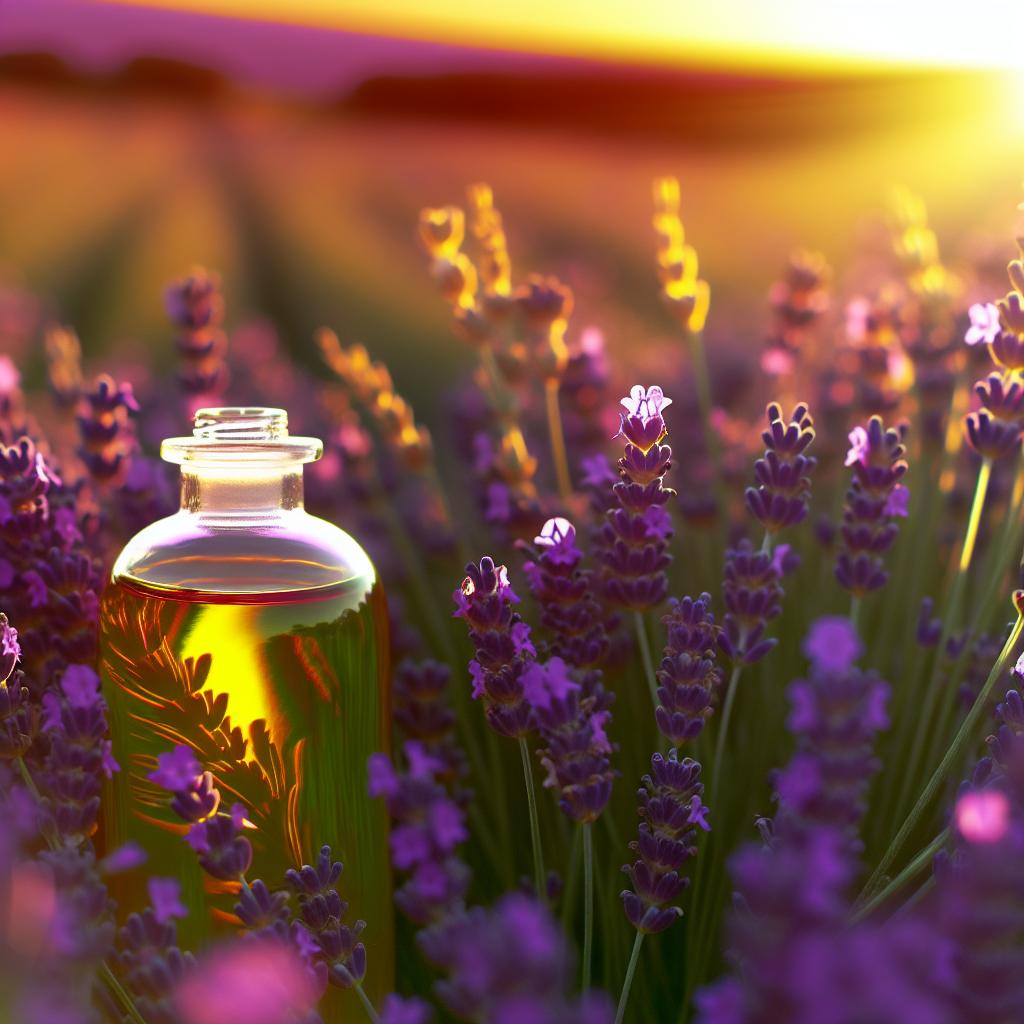
Introduction to Lavender Oil
Lavender oil, derived from the lavender plant, is a widely utilized essential oil celebrated for both its pleasant aroma and therapeutic properties. This essential oil is primarily extracted through a process known as steam distillation and holds a multitude of applications across various fields such as aromatherapy, cosmetics, and alternative medicine. As a remarkably versatile product, lavender oil has embedded itself as a staple in promoting both physical and mental well-being.
Chemical Composition
The efficacy and allure of lavender oil can be attributed to its complex chemical composition. Among its several key constituents are linalool, linalyl acetate, lavandulol, geraniol, and cineole. These compounds collectively contribute to the oil’s distinct fragrance and its potential array of health benefits. The primary component, linalool, is particularly noteworthy for its calming and anti-inflammatory attributes, making lavender oil a popular selection in the realm of aromatherapy. Its composition, rich in diverse and beneficial compounds, provides a foundation for its wide-ranging uses, whether it be for therapeutic purposes or everyday applications.
Benefits of Lavender Oil
Lavender oil is renowned for its versatility and numerous potential benefits. Among its primary appeals is its ability to evoke relaxing effects which might aid in reducing anxiety and stress, as well as improving sleep quality. Many people turn to lavender oil as a natural remedy to foster a sense of calm and to potentially enhance their overall emotional state. Furthermore, research suggests lavender oil may possess antimicrobial properties, which render it useful in skincare products aimed at combating acne and managing minor skin infections.
Moreover, studies have also indicated its potential to ease pain and inflammation. This makes lavender oil a potential complement in addressing ailments such as headaches and muscle soreness. However, it is worth noting that while many benefits of lavender oil are supported by anecdotal evidence, further scientific research is needed to confirm these claims with higher certainty. Despite the ongoing nature of scientific exploration, lavender oil’s cherished status as a natural, multi-purpose oil continues to hold significant promise.
Applications in Aromatherapy
In the practice of aromatherapy, lavender oil is frequently used to promote relaxation and enhance mental well-being. It is believed to exert its effects by influencing the limbic system, the part of the brain associated with emotions and memory. When inhaled through diffusion or applied during massage treatments, lavender oil may help alleviate anxiety and tension, serving as a natural alternative to foster a tranquil environment. Aromatherapy practitioners often recommend its use before bedtime to enhance sleep quality by promoting a relaxing atmosphere.
Skincare Uses
Within the skincare domain, lavender oil is often incorporated into product formulations due to its potential to soothe irritated skin, paired with its antimicrobial properties. Its calming effects make it beneficial for treating minor burns, cuts, and insect bites, thereby promoting healing and comfort. For those with sensitive skin, lavender oil may offer a gentler approach to addressing minor skin concerns, presenting itself as a potential ingredient in a variety of skincare products ranging from creams to serums.
Household Uses
Beyond therapeutic applications, lavender oil holds value within household settings. Its pleasant aroma and disinfectant properties make it an attractive choice for natural air freshening solutions. Lavender oil can be incorporated into homemade cleaning products, providing an aromatic yet effective solution for maintaining a clean and fresh-smelling living space. This dual-functionality as both a therapeutic and practical household product broadens its appeal and usability within everyday life.
Precautions and Side Effects
Though lavender oil is generally considered safe for use, it is vital to exercise caution to prevent any adverse effects. Allergic reactions can occur in certain individuals, particularly those with sensitive skin, and it is advisable to conduct a patch test before applying the oil directly to the skin. Additionally, while beloved for its natural origin, lavender oil should be used sparingly during pregnancy and should always be kept out of reach of children to prevent accidental ingestion or misuse.
As the scientific community continues to delve into the properties and applications of lavender oil, new discoveries are likely to emerge regarding its efficacy and potential uses. For consumers interested in exploring its myriad benefits, investing in high-quality, pure lavender oil is recommended. It is prudent to select brands that offer transparent information on sourcing and extraction methods, ensuring both product efficacy and safety. Lavender oil’s enduring popularity speaks to its effectiveness and adaptability, making it a vital component in both personal care and household maintenance practices. As our understanding expands, so too do the opportunities to integrate this remarkable essential oil into our daily lives with confidence and informed awareness.

